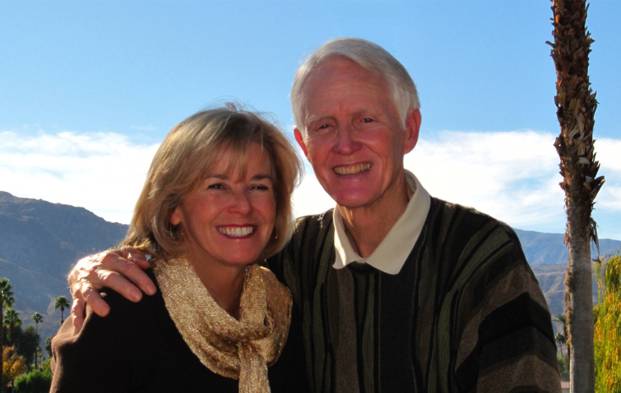
You Can Choose To Be Happy:
Rise Above, Anxiety, Anger, and Depression
(with Research Results)
Brief Book Summary
Tom G. Stevens PhDPsychologist/Professor Emeritus, California State University, Long Beach
Send Feedback/Questions to: Tom.Stevens@csulb.edu
You Can Choose To Be Happy:
Site dedicated to enhancing human happiness, self-development, and success
Go to: Choose To Be Happy Checklist
SITE MAP: All free Self-help resources includes online book, You Can Choose To Be Happy, and SHAQ

|
|||
| search engine by freefind |
You Can
Choose To Be Happy:
"Rise Above" Anxiety, Anger, and Depression
(with Research Results)*
Brief Book Summary
Tom G. Stevens PhD
=> For more information about the book, or to read it, go to: : www.csulb.edu/~tstevens/my-peek.htm
=> For a summary of the key points/guidelines in the book for leading a happy, productive life, go to: www.csulb.edu/~tstevens/hhapchk.htm
My book, You Can Choose To Be Happy: "Rise Above" Anxiety, Anger, and Depression, is the result of a personal quest that began when I was 16. I decided to try making happiness for self and others my top goal in life. Dr. Abraham Maslow's description of self-actualization later served as a role model. My book summarizes the knowledge I gained during the past 40 years--first as a United Methodist minister and then as a psychologist in Counseling and Psychological Services.
The biggest single factor controlling people's happiness and self-actualization is their choice of what the great philosopher Paul Tillich called our ultimate concern. Many people think that making human happiness a top goal is selfish or naive. But great philosophers such as the Buddha, Aristotle, Kant, and Bertrand Russell all said happiness should be number one for many reasons. Jesus also implied that happiness for self and others was of highest importance.
A powerful benefit of making your ultimate concern mental values like happiness, love, truth, beauty, and growth is that they automatically bring peace of mind. The choice of internal, mental values over external values is vital for overcoming anxiety because you can directly control only mental/spiritual values. As the Buddha recognized, becoming too attached to something you can't directly control-such as success, money, other people's opinions, or any external condition-is a major cause of anxiety. For example, the instant you make success a top goal, you will feel bolts of anxiety whenever anything threatens your success.
What causes our emotions? Our emotions measure the condition of higher brain states. Overarousal emotions like anxiety come from being overwhelmed with more input than we can cope with. Underarousal emotions like depression come from too little input-often because we have withdrawn to avoid anxiety and/or lack meaning in the situation. Happiness comes from input being optimally challenging and validating in such a way that maximum learning and inner harmony occur in the higher brain centers.
Victor Frankl found happiness even in Nazi concentration camps. He did it by getting mental control of the situation. Later he used this knowledge to form a new school of psychotherapy. You too can learn to overcome your past history, your biology, or any situation to find peace and happiness. My book presents six basic strategies for getting mental control of our emotions. You can learn to "get into the zone" of harmonious functioning for peak learning, performance, and happiness.
The center of your self-worth and unconditional love of self and others is your Higher Self. It is a cognitive system that develops naturally in childhood. A Higher Self raised in a negative, dysfunctional family may remain weak and underdeveloped. To make your Higher Self the strong, democratic executive over your other subparts, choose happiness for self and others over others' opinions, success, rules, coercion, or any other challenger. Develop a well-thought-out philosophy based upon your highest mental values to effectively cope with any situation. Then your Higher Self will become your inner core, your inner hero, and your inner conductor bringing harmony to all parts of your personality and life.
Another vital aspect of achieving happiness is facing and overcoming your worst fears and your most negative subparts. Many people can use the self-exploration method and other suggestions in the book to overcome these sources of unhappiness, although good psychotherapy may be necessary for others.
Other important aspects of learning to be happy covered by the book include learning how to be grateful for all that you have, learning how to overcome being too externally controlled by others, learning to forgive, learning how to develop a more positive-yet realistic-view of life, and improving your ability to accomplish more and have more fun through effective management of your life.
An extensive research study based upon the first edition of the book examined the responses of 3,443 people who took the Success and Happiness Attributes Questionnaire (SHAQ). It found that the Happiness Quotient (HQ) derived from factors described in the book (and briefly above) predicted overall happiness with 75% accuracy and depression with 53% accuracy. It had impressive relationships with other emotional and life success factors as well (including relationship success, health, academic success, and income). That research helps support the ideas in this book to an extent that few other self-help books have achieved.
These ideas only scratch the surface. To see more, visit my web site at www.csulb.edu/~tstevens and download the Choose To Be Happy Checklist or a copy of the book. Or, download one of my free handouts on many self-help topics from learning and study skills, time management, and career planning to coping with emotions, meeting people, intimacy, and conflict-resolution.
Chapter 10 includes a summary of the book conclusions and research results. This research was conducted using SHAQ--the Success and Happiness Attributes Questionnaire. More than 3400 people's results were used. The research discovered a new HQ (Happiness Quotient) formula that was very successful predicting happiness and other emotional and life success outcomes. The SHAQ scales had moderate to high positive correlations with almost all outcome measures.
SHAQ‘s HQ formula had surprisingly high correlations with the emotional outcomes; with Overall Happiness, R = .87, with Low Depression, R = .730, R Square = .533; with Low Anxiety R = .68; with Low Anger-Aggression, R = .70. Results for SHAQ Scales correlations with other Outcome scales include: the Relationship Outcomes scale, R = .693,; for the Health Outcomes scale, R = .82, for Highest Income, R = .49, and for Educational Attainment, R = .46. Behavioral measures used as outcomes also yielded very good results.
The results support SHAQ‘s reliability, validity, and utility. The results also support the main ideas in the book and the proposition that a host of key cognitions are the most important determinants of happiness and other emotions. They also show how these positive happiness and success-producing factors tend to correlate with each other and may support the development of each other. The implication is that when people begin a self-development program, they can use SHAQ to get a profile of the factors they need to improve in order to increase their happiness (and decrease depression, anxiety, and anger) and increase life success. The results also suggest that starting almost anywhere can begin a positive change process that will improve other factors as well.
==> You can get a free pdf or html version by clicking on http://www.csulb.edu./~tstevens/my-peek.htm
Ordering hard copies, Kindle, or ebooks on the Internet:
Or you can order a soft-cover perfect bound book at amazon.com or a Kindle book at amazon or other internet website or from your local bookstore (even in many other nations). It is also available as an ebook from Google or Barnes and Noble.
ADDED IN 2010 REVISED EDITION: New section on Interpersonal Skills and updated or added information/recommendations throughout the book. Research Results from SHAQ (Success and Happiness Attributes Questionnaire) providing strong support form ideas and recommendations in every chapter in the book. Updated research results from other researchers added as well.
I wish you a happy life.
You Can Choose To Be Happy: "Rise Above" Anxiety,
Anger, and Depression, Tom G. Stevens PhD
Revised Version Copyright 2010, 324 pages, 6.69x9l.61 Soft Cover,
Wheeler-Sutton Publ. Co. $17.95 (often discounted to $14 or less, go to
amazon.com
You
Can Choose To Be Happy: "Rise Above" Anxiety, Anger, and Depression
or other e-store).
*Article published in In Touch.
Dr Tom G Stevens' BOOK: You Can Choose To Be Happy:
"Rise Above" Anxiety, Anger, and Depression
(with Research Results)
Go to Free BOOK DOWNLOAD
pdf
Go to BOOK CONTENTS
Go to RESEARCH SUMMARY CHAPTER
SELF-HELP INFORMATION + SITE MAP:
FREE SELF-HELP MATERIALS on this web site (click here to see list)
Free SHAQ QUESTIONNAIRE: Go to:
Success and Happiness Attributes Questionnaire (SHAQ)
to assess yourself on many factors--including your
HQ-Happiness Quotient
ORDERING the BOOK:
How to ORDER You Can Choose To Be Happy
Web site created and maintained by: Tom G. Stevens PhD,
Psychologist/Professor Emeritus, California State University, Long
Beach Counseling and Psychological Services
URL of this web site:
http://home.csulb.edu/~tstevens/index.html
HOME PAGE: Return to Dr Tom Stevens' Home Page Copyright 2025; Tom G. Stevens PhD